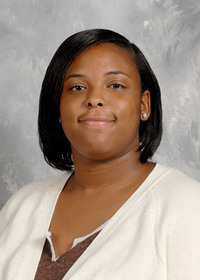Information Possibly Outdated
The information presented on this page was originally released on August 30, 1999. It may not be outdated, but please search our site for more current information. If you plan to quote or reference this information in a publication, please check with the Extension specialist or author before proceeding.
Rural Doctors Value Future Med Students
MISSISSIPPI STATE -- Rural medical doctors across Northeast Mississippi recently made time in their busy schedules to encourage future physicians waiting in their shadows.
Dr. J. Edward Hill, director of the family medicine residency program at North Mississippi Medical Center, helped arrange the "shadowing" opportunity for participants in a special Rural Medical Scholars Program last summer. This was the second year for the six-week program designed for upcoming high school seniors considering careers in medicine.
Mississippi State University's Extension Service and the state's 15 community colleges formed a Rural Health Corps in 1993 dedicated to improving Mississippi's health care through efforts like the medical scholars program. Each community college sponsored two students from its area. The scholars earned college credit at MSU and got important insights into rural health needs.
"Participating doctors gained the personal satisfaction of exposing students to a profession they believe in strongly," said Bonnie Carew, rural health policy coordinator with MSU's Extension Service and program director.
"While the half-day shadowing was an observational opportunity only, some doctors spent a great deal of time talking to the students about their educational and career goals," Carew said. "This aspect of the Rural Medical Scholars Program is a major benefit for students. There are other opportunities for college credit, but not for shadowing doctors."
Participants spent one half day each week for five weeks with a different doctor. They also toured hospitals and were able to observe a heart catheterization in progress.
"The students gained valuable behind-the-scenes insights into work in hospitals and clinic environments," Carew said.
One goal of the program is to help draw future physicians to rural Mississippi practices. As of May 1998, 62 counties, or portions of counties, were designated as health professional shortage areas for primary care. Carew said almost half of all Mississippians do not have access to a primary health care provider.
"One out of five Mississippi physicians is over the age of 60, so future retirement rates could further erode access to care," Carew said. "The students who take part in this program are Mississippi's hope for future medical care."
Requirements for applying to the program include the completion of the junior year in high school, a minimum composite ACT score of 25, a desire to learn about a career in family medicine, and residency in Mississippi. The application process takes place in the spring semester.
For more information, contact the local Extension home economist or youth agent, the nearest community college or high school guidance counselor.


